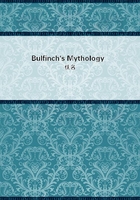
第76章
Now under hanging mountains, Beside the falls of fountains, Or where Hebrus wanders, Rolling in meanders, All alone, He makes his moan, And calls her ghost, Forever, ever, ever lost!
Now with furies surrounded, Despairing, confounded, He trembles, he glows, Amidst Rhodope's snows.
See, wild as the winds o'er the desert he flies;Hark! Haemus resounds with the Bacchanals' cries.
Ah, see, he dies!
Yet even in death Eurydice he sung, Eurydice still trembled on his tongue;Eurydice the woods, Eurydice the floods, Eurydice the rocks and hollow mountains rung."The superior melody of the nightingale's song over the grave of Orpheus, is alluded to by Southey in his Thalaba:
"Then on his ear what sounds Of harmony arose!
Far music and the distance-mellowed song >From bowers of merriment;The waterfall remote;
The murmuring of the leafy groves;
The single nightingale Perched in the rosier by, so richly toned, That never from that most melodious bird Singing a love-song to his brooding mate, Did Thracian shepherd by the grave Of Orpheus hear a sweeter melody, Though there the spirit of the sepulchre All his own power infuse, to swell The incense that he loves."ARISTAEUS, THE BEE-KEEPER
Man avails himself of the instincts of the inferior animals for his own advantage. Hence sprang the art of keeping bees. Honey must first have been known as a wild product, the bees building their structures in hollow trees or holes in the rocks, or any similar cavity that chance offered. Thus occasionally the carcass of a dead animal would be occupied by the bees for that purpose. It was no doubt from some such incident that the superstition arose that the bees were engendered by the decaying flesh of the animal; and Virgil, in the following story (From the Georgies, Book IV.1.317), shows how this supposed fact may be turned to account for renewing the swarm when it has been lost by disease or accident.
The shepherd Aristaeus, who first taught the management of bees, was the son of the water-nymph Cyrene. His bees had perished, and he resorted for aid to his mother. He stood at the river side and thus addressed her: "Oh, mother, the pride of my life is taken from me! I have lost my precious bees. My care and skill have availed me nothing, and you, my mother, have not warded off from me the blow of misfortune." His mother heard these complaints as she sat in her palace at the bottom of the river with her attendant nymphs around her. They were engaged in female occupations, spinning and weaving, while one told stories to amuse the rest. The sad voice of Aristaeus interrupting their occupation, one of them put her head above the water and seeing him, returned and gave information to his mother, who ordered that he should be brought into her presence. The river at her command opened itself and let him pass in, while it stood curled like a mountain on either side. He descended to the region where the fountains of the great rivers lie; he saw the enormous receptacles of waters and was almost deafened with the roar, while he surveyed them hurrying off in various directions to water the face of the earth. Arriving at his mother's apartment he was hospitably received by Cyrene and her nymphs, who spread their table with the richest dainties. They first poured out libations to Neptune, then regaled themselves with the feast, and after that Cyrene thus addressed him: "There is an old prophet named Proteus, who dwells in the sea and is a favorite of Neptune, whose herd of sea-calves he pastures. We nymphs hold him in great respect, for he is a learned sage, and knows all things, past, present, and to come. He can tell you, my son, the cause of the mortality among your bees, and how you may remedy it. But he will not do it voluntarily, however you may entreat him. You must compel him by force. If you seize him and chain him, he will answer your questions in order to get released, for he cannot, by all his arts, get away if you hold fast the chains.
I will carry you to his cave, where he comes at noon to take his midday repose. Then you may easily secure him. But when he finds himself captured, his resort is to a power he possesses of changing himself into various forms. He will become a wild boar or a fierce tiger, a scaly dragon, or lion with yellow mane. Or he will make a noise like the crackling of flames or the rush of water, so as to tempt you to let go the chain, when he will make his escape. But you have only to keep him fast bound, and at last when he finds all his arts unavailing, he will return to his own figure and obey your commands." So saying she sprinkled her son with fragrant nectar, the beverage of the gods, and immediately an unusual vigor filled his frame and courage his heart, while perfume breathed all around him.